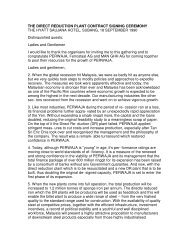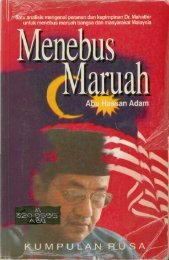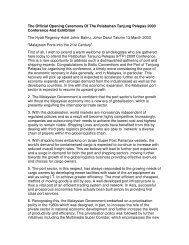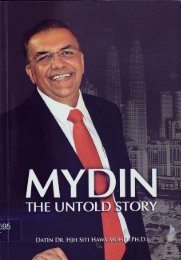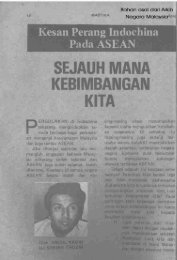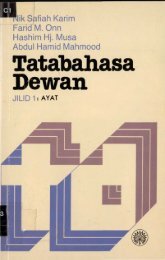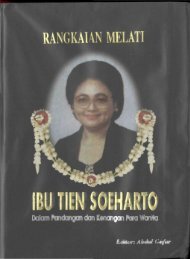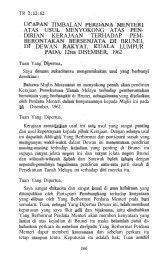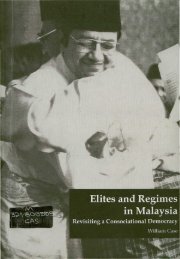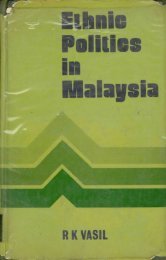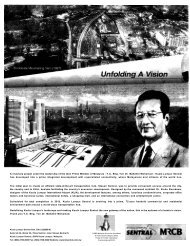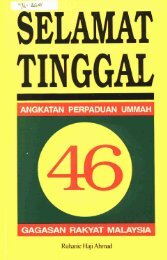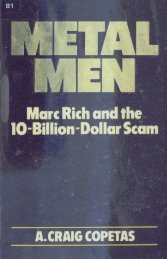TRIBUTE ABDUL - Perdana Library
TRIBUTE ABDUL - Perdana Library
TRIBUTE ABDUL - Perdana Library
You also want an ePaper? Increase the reach of your titles
YUMPU automatically turns print PDFs into web optimized ePapers that Google loves.
<strong>TRIBUTE</strong> TO TUNKU <strong>ABDUL</strong> RAHMAN<br />
accepted his leadership Tunku Abdul Rahman proceeded to inject<br />
his own realism into his closest friends and through them to the<br />
general Malay community.<br />
The Tunku realised very early in his political career that the<br />
Malay community had only belatedly and hesitatingly entered into<br />
the modern world, and therefore they had to work hard to catch up<br />
with the immigrant racial groups who had progressed much further.<br />
At the same time however he also realised that the Malays could<br />
not make any headway without the goodwill, co-operation and help<br />
of other racial groups. Jt was, therefore , a stroke of genius to have<br />
brought together the three main ethnic groups to share in the<br />
administration ofthe country. From this sagacious arrangement,<br />
a political expediency no doubt, has arisen every hope of integration<br />
ofa Malayan nation.<br />
One country in South-east Asia which has so far retained its<br />
democratic institutions despite great internal diversity is Malaya.<br />
Here, on the basis of what happened else-where the Jeremiahs were,<br />
and still are, entitled to assume that radical discord must soon bring<br />
civil strife or strong-man rule, or both, but the Tunku and the<br />
Alliance have been able to hold the leading parties together within<br />
the constitutional framework. Malaya has been independent<br />
only since 1957 and known precedents suggest that the momentum<br />
derived from the British period and the elan coming from winning<br />
independence take a longer time than this to run down.<br />
It is inevitable that as the Malays develop their own middle<br />
class and intelligentsia and become more urbanised there will be a<br />
shift in internal power relationships. Almost the whole of the<br />
Malay political leadership has been drawn from the traditional<br />
governing class. A similar shift as in the Malay community will<br />
occur in the Chinese as its lower strata is enfranchised and challenges<br />
the power of the rich and generally conservative elements which<br />
control the Malayan Chinese Association.<br />
Politicians, more frequently than not. are prone to use their<br />
power and influence in a national sense and rarely look beyond the<br />
8



